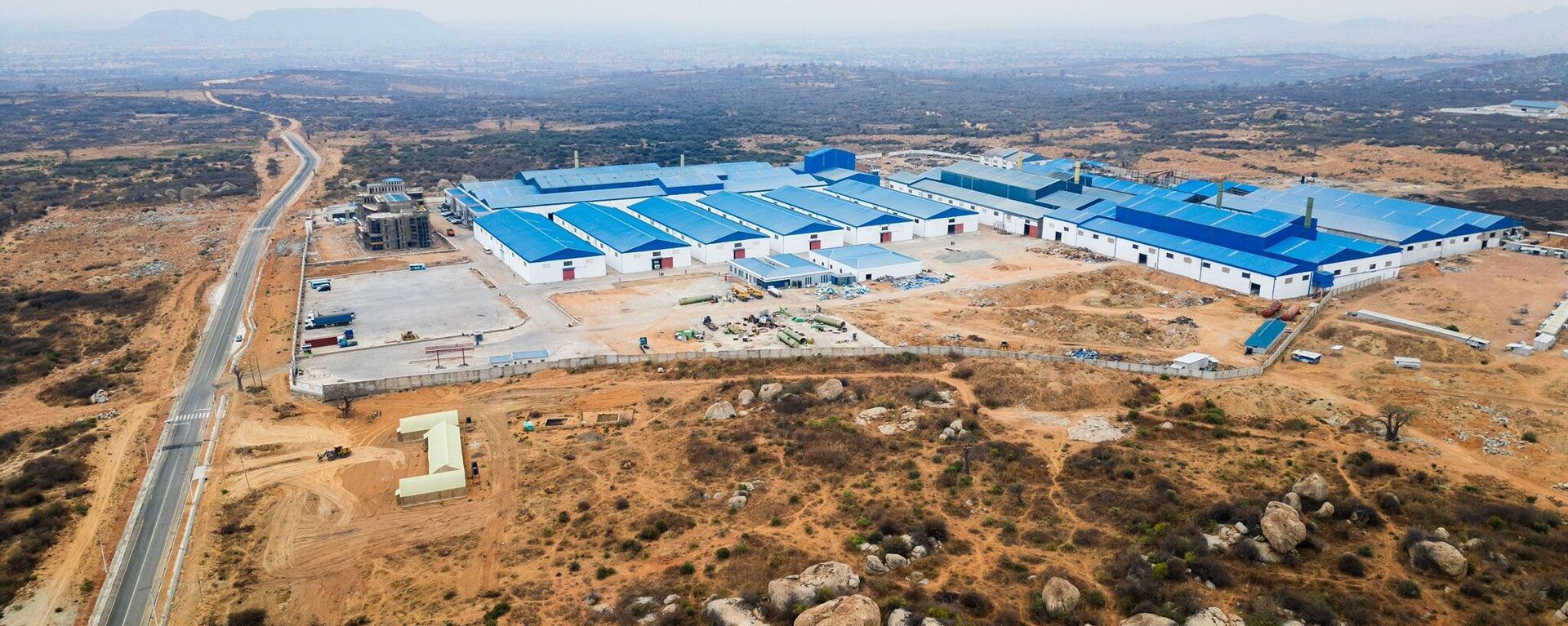https://en.sputniknews.africa/20241219/tanzania-forecasts-six-percent-economic-growth-next-year-despite-potential-risks-1069793322.html
Tanzania Forecasts Six Percent Economic Growth Next Year Despite Potential Risks
Tanzania Forecasts Six Percent Economic Growth Next Year Despite Potential Risks
Sputnik Africa
This week, the Tanzania Investment Centre announced an unprecedented $7.75 billion in investments for 2024, spanning 842 projects across different sectors. The... 19.12.2024, Sputnik Africa
2024-12-19T13:48+0100
2024-12-19T13:48+0100
2024-12-19T13:48+0100
tanzania
economy
international monetary fund (imf)
sub-saharan africa
east africa
inflation
conflict
budget
foreign exchange
policy
https://cdn1.img.sputniknews.africa/img/07e8/0c/13/1069792952_0:153:3097:1895_1920x0_80_0_0_ed1f255b17624a42a03a1a528c526817.jpg
Tanzania's economy is projected to expand by approximately 6% in 2025, an increase from the estimated 5.4% growth in 2024, according to a letter by the finance minister and central bank governor to the International Monetary Fund.However, they noted that the economy might face challenges such as intensifying regional conflicts, fluctuating commodity prices, a global economic slowdown, and climate change-induced natural disasters.At the same time, inflation is staying within the central bank's 5% target desired range, and there is a fiscal consolidation in progress that supports growth.During the fiscal year 2023/24, the current account deficit decreased, primarily due to robust service exports and a reduction in imports. The foreign exchange market pressures have lessened, influenced by seasonal current account movements, a firm monetary policy, and flexible exchange rates.
https://en.sputniknews.africa/20241218/tanzania-registers-77-billion-in-investments-for-2024-surpassing-records-1069774190.html
tanzania
east africa
Sputnik Africa
feedback@sputniknews.com
+74956456601
MIA „Rossiya Segodnya“
2024
Christina Glazkova
https://cdn1.img.sputniknews.africa/img/07e7/0b/07/1063380906_0:0:673:674_100x100_80_0_0_79628b4d0cd9f29291a57aa13bbf9e7a.jpg
Christina Glazkova
https://cdn1.img.sputniknews.africa/img/07e7/0b/07/1063380906_0:0:673:674_100x100_80_0_0_79628b4d0cd9f29291a57aa13bbf9e7a.jpg
News
en_EN
Sputnik Africa
feedback@sputniknews.com
+74956456601
MIA „Rossiya Segodnya“
Sputnik Africa
feedback@sputniknews.com
+74956456601
MIA „Rossiya Segodnya“
Christina Glazkova
https://cdn1.img.sputniknews.africa/img/07e7/0b/07/1063380906_0:0:673:674_100x100_80_0_0_79628b4d0cd9f29291a57aa13bbf9e7a.jpg
tanzania, economy, international monetary fund (imf), east africa, inflation, conflict, budget, foreign exchange, policy, exchange
tanzania, economy, international monetary fund (imf), east africa, inflation, conflict, budget, foreign exchange, policy, exchange
Tanzania Forecasts Six Percent Economic Growth Next Year Despite Potential Risks
Christina Glazkova
Writer / Editor
This week, the Tanzania Investment Centre announced an unprecedented $7.75 billion in investments for 2024, spanning 842 projects across different sectors. The manufacturing sector was at the forefront with 377 projects totaling $3.15 billion, followed by the transport sector with 138 projects valued at $1.28 billion.
Tanzania's economy is projected to expand by approximately 6% in 2025, an increase from the estimated 5.4% growth in 2024, according to a
letter by the finance minister and central bank governor to the International Monetary Fund.
However, they noted that the economy might face challenges such as intensifying
regional conflicts, fluctuating commodity prices, a global economic slowdown, and climate change-induced natural disasters.
At the same time,
inflation is staying within the central bank's 5% target desired range, and there is a fiscal consolidation in progress that supports growth.
During the fiscal year 2023/24, the current account deficit decreased, primarily due to robust service exports and a reduction in imports. The foreign exchange market pressures have lessened, influenced by seasonal current account movements, a firm monetary policy, and flexible exchange rates.



